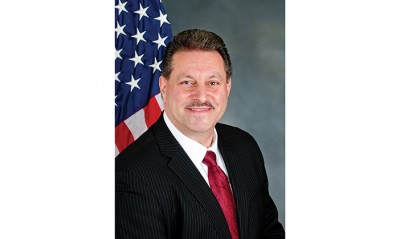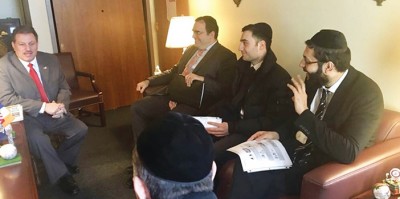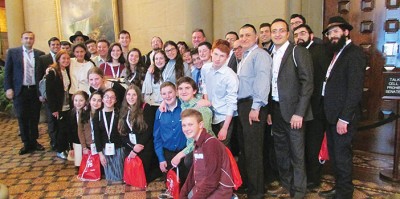


Our elected officials stand at the crossroads of getting things done and letting things slide unnoticed. They represent their constituents in consideration of all relevant legislation, and their choices in all aspects of their work can shape whole communities. What motivates a person to take up the mantle and responsibility for hundreds of thousands of people? What tasks do they concern themselves with once they attain the position of statesman? We interviewed Senator Joseph Addabbo, Jr., who represents the 15th senatorial district, to present our readers with answers to these questions. The following interview presents our readers with a rare opportunity to experience an “inside track” into the world of politics. It also gives our readers an appreciation of the work, ethos and efforts of the people who center their life on public concern.
BJL: Please tell our readers about yourself, where you grow up, how and why you entered politics?
Senator: I was born and raised in Tudor Village of Ozone Park, Queens, where I have been all my life. As I grew up, I became active in the Ozone Civic Tudor Association. I became president of the group and remained so for about 10 years. During this time, I also finished law school and then practiced as an attorney.
I ran for City Council in 1998. It was a true learning experience, so that even though I lost the race, I gained much knowledge. When I then ran in 2001, I was able to use my experience and win. I served in City Council from 2002 through 2008.
The inspiration and drive I have to serve and help the public comes from my father. Of the three children my father has, I was the only one born during his tenure in public office. My father was first an attorney and eventually became a congressman. I saw my father as a public servant, grew up admiring the work that he did, witnessed the satisfaction he had from helping others, and wanted to emulate him. Of course, it is important to mention that while my father worked in Washington, my mother raised three children back at home. Her role and my father’s work together always inspire me to be a public servant.
Elected positions are not inherited, and so I got involved with community and civic work to decide if it was something I wanted to devote my life to. When the opportunity for City Council presented itself again in 2001, I ran with an appreciation for community and civic work.
Today, I am proud to represent the 15th senatorial district, which encompasses – in whole or part – Kew Gardens, Kew Gardens Hills, Forest Hills, Rego Park, Elmhurst, Woodside, Middle Village, Maspeth, Glendale, Ridgewood, Ozone Park, South Ozone Park, Richmond Hill, Woodhaven, Howard Beach, Lindenwood, Hamilton Beach, Broad Channel and the Rockaways.
BJL: How does your experience with so many different groups reflect on your relationship with the growing Jewish Bukharian community?
Senator: As my district changed and expanded, I noticed there are many common needs, and also importantly, a lot of unique needs. Growing with the Bukharian Jewish community, I got to learn a lot about their religious base and their dedication to community and religious life. Groups like the ABA (Alliance for Bukharian Americans) have made great strides in the political world. They are not only a liaison for me, but also demonstrate to the community how integral political contact is for a growing population. Many times, a new group moves into a community and doesn’t know who to turn to for necessities like increased security or even something like a problematic street light. Groups like the ABA facilitate a two-way street where both the civil servant and the community work together for the better.
BJL: How do you view organizations like the ABA, and what role do you believe they will have in shaping the community?
Senator: Groups like the ABA are critically important. As the ABA reaches out to the local elected officials, police departments, and government agencies, it creates relationships crucial to the health of its community. At the same time, it develops a venue through which government officials can help the community. In the big picture, the community can then appeal to any government level for necessary aid. In essence, as the ABA grows, the community’s contacts advance until it meets the desired threshold.
BJL: On March 13, the community joined the ABA on an advocacy trip to Albany for greater support for the S.T.E.M. program. Can you please tell our readers how impactful the trip is in the state capitol?
Senator: The S.T.E.M. program has been around for a couple of years now. The name stands for science, technology, engineering, and mathematics, and reflects the state’s efforts in supporting this basic curriculum in our schools. As we currently have a state budget with a $4.6 billion deficit, we want to make sure that the money we allocate for education is used effectively; there is no room for waste.
STEM has a good track record of helping our students, and we therefore advocate that all students in our state, whether they are in public school, private school, or yeshivah, receive benefit from this program.
Those students and their families from your community who were brought up to Albany with the ABA did their part in ensuring that we in Albany get the message. When any student makes his way up here, I understand that he or she represents over a million students throughout New York state. This is very important to me especially because it helps me advocate for the community in Albany. The ABA may not get floor speaking rights regarding budget allocation, but the communication and understanding they and groups like them facilitate allow me to effectively serve the public. Your readers need to know that as much as we want to help we cannot read the minds of our constituents; reaching out to elected officials regarding your concerns makes a real difference.
BJL: Just last week, a local Queens High School was locked down because of a possible shooting threat. What is Albany doing regarding concerns of school security?
Senator: The Senate just passed a package of bills that address this concern. Unfortunately, the topic has been politicized, but we can all generally agree that gun violence has become a growing issue of concern. I personally am on a major campaign to ensure that simple and effective measures are taken in all schools. This includes security personnel, cameras, even just locking the doors, which are usually overlooked. In my estimation, school safety will have its share of the budget.
BJL: Another major concern is the stark rise in anti-Semitic attacks. Can Albany to prevent the growing tide of hate?
Senator: By increasing the penalty over the past two years for any form of attack or desecration at any site, we hope to decrease the crime. Of course, we also coordinate with our law enforcement to implement the penalties we pass. Overall, the issue is definitely addressed in Albany and needs to be constantly enforced. Unfortunately, no one is immune to anti-Semitic/ anti-religious/ anti-human behavior, but hopefully we can work to decrease what is a legal issue and crime.
BJL: Your office is sponsoring a free legal aid workshop at Beth Gavriel on April 9. How did that come about, and what does it hope to achieve?
Senator: I always feel that the elected officials have the opportunity to bring certain resources right into the district, be they job fairs, prostate and mammogram exams, and legal aid, etc. We have been working with the New York Legal Aid and others to bring free legal resources to our districts. April 9 will be the day where we do it in Forest Hills in conjunction with the ABA, at the Beth Gavriel Community Center. Legal professionals will be there to answer a wide range of legal issues or questions for the community.
BJL: What would you suggest to young Bukharians who wish to enter the world of politics and, like you, make a difference?
Senator: Well, the first thing to understand is that politics is not for everyone; it is a sacrifice. The job is 24/7; we work on nights and the weekends. The main desire behind this choice needs to be to help others. Neither the fame nor the money is worth the effort because they can both be achieved to a greater extent doing something else. To be a successful statesman, one needs to truly enjoy helping another.
That being said, if someone is interested, he or she can intern with a local elected official such as city councilman, assemblyman, or local congressman. I think you can only know for sure if this is for you after observing the actual day-to-day activities of a public servant and then making an educated decision. Of course, your readers can also gain experience by getting involved in local precinct council meetings or community board gatherings. In general, being an active, rational voice for and within the community makes a great difference in the path
you choose.BJL: Do you have any closing personal messages or remarks you would like to tell our readers?
Senator: Yes. Please understand that you can always reach out to me at all times. All three of our district offices have 24-hour phone operators. Also, I can be reached via email or letter regarding any concerns. Many people have problems and don’t know where to turn. I want your readers to know they can always turn to me.
Through the Eyes Of A Veteran Statesman Interviewing Senator Joseph Addabbo, Jr.
Typography
- Smaller Small Medium Big Bigger
- Default Helvetica Segoe Georgia Times
- Reading Mode




